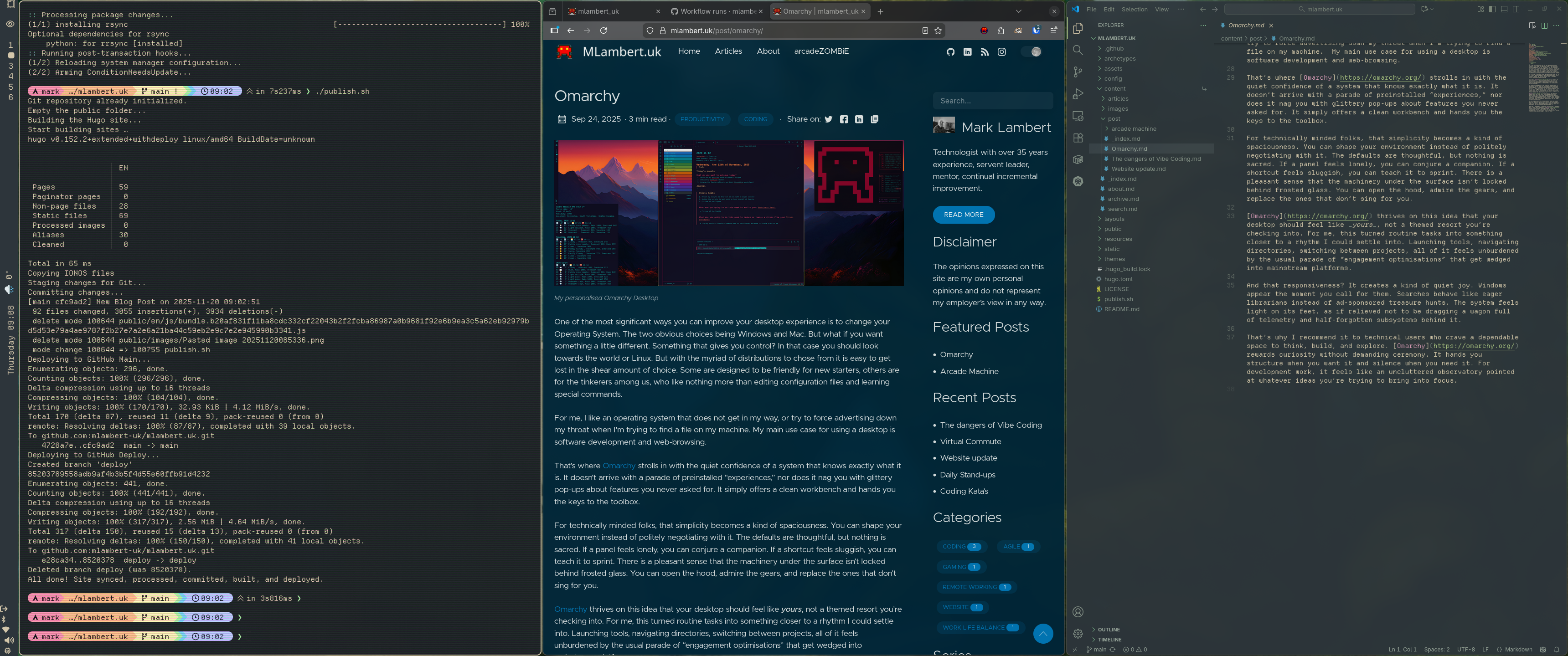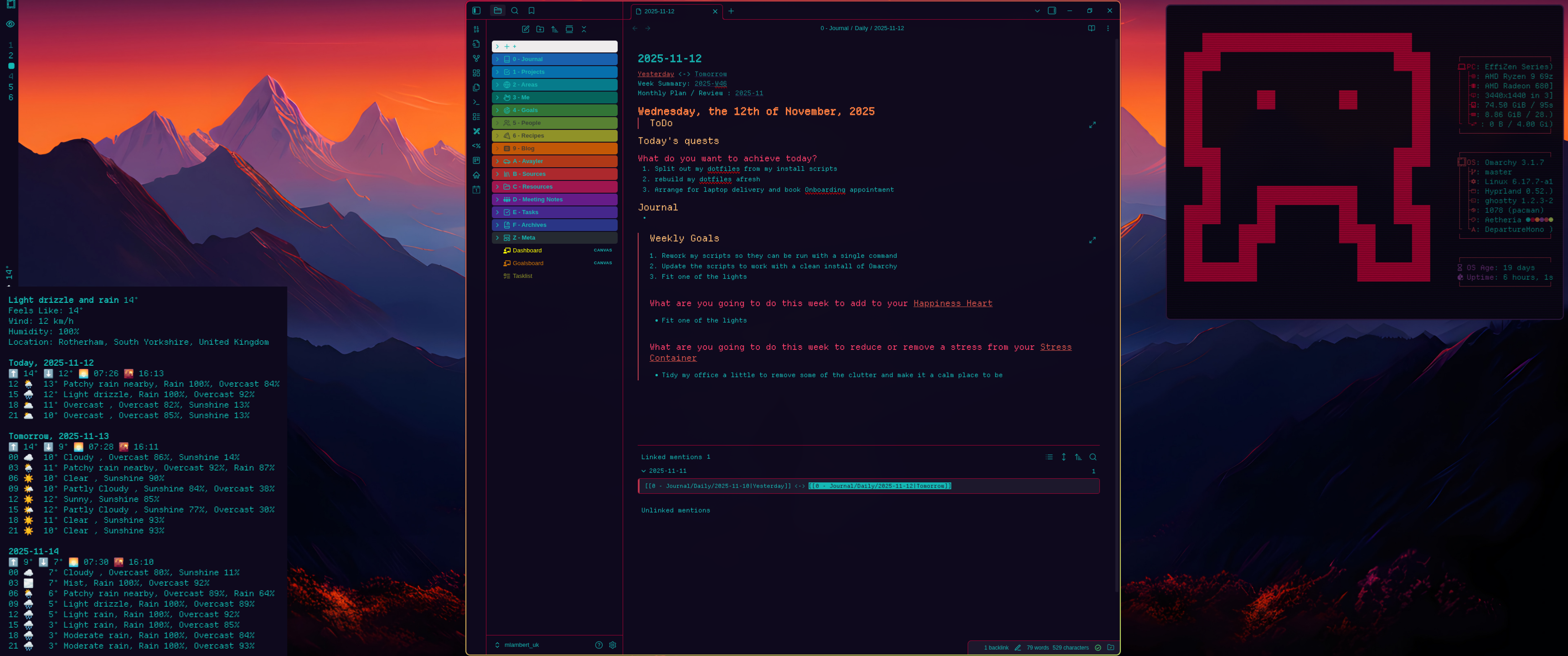Omarchy

One of the most significant ways you can improve your desktop experience is to change your Operating System. The two obvious choices being Windows and Mac. But what if you want something a little different. Something that gives you control? In that case you should look towards the world or Linux. But with the myriad of distributions to chose from it is easy to get lost in the shear amount of choice. Some are designed to be friendly for new starters, others are for the tinkerers among us, who like nothing more than editing configuration files and learning special commands.
For me, I like an operating system that does not get in my way, or try to force advertising down my throat when I'm trying to find a file on my machine. My main use case for using a desktop is software development and web-browsing.
That’s where Omarchy strolls in with the quiet confidence of a system that knows exactly what it is. It doesn’t arrive with a parade of preinstalled “experiences,” nor does it nag you with glittery pop-ups about features you never asked for. It simply offers a clean workbench and hands you the keys to the toolbox.
For technically minded folks, that simplicity becomes a kind of spaciousness. You can shape your environment instead of politely negotiating with it. The defaults are thoughtful, but nothing is sacred. If a panel feels lonely, you can conjure a companion. If a shortcut feels sluggish, you can teach it to sprint. There is a pleasant sense that the machinery under the surface isn’t locked behind frosted glass. You can open the hood, admire the gears, and replace the ones that don’t sing for you.
Omarchy thrives on this idea that your desktop should feel like yours, not a themed resort you’re checking into. For me, this turned routine tasks into something closer to a rhythm I could settle into. Launching tools, navigating directories, switching between projects, all of it feels unburdened by the usual parade of “engagement optimisations” that get wedged into mainstream platforms.
And that responsiveness? It creates a kind of quiet joy. Windows appear the moment you call for them. Searches behave like eager librarians instead of ad-sponsored treasure hunts. The system feels light on its feet, as if relieved not to be dragging a wagon full of telemetry and half-forgotten subsystems behind it.
That’s why I recommend it to technical users who crave a dependable space to think, build, and explore. Omarchy rewards curiosity without demanding ceremony. It hands you structure when you want it and silence when you need it. For development work, it feels like an uncluttered observatory pointed at whatever ideas you’re trying to bring into focus.

Is Omarchy Right for You?
Omarchy is perfect if you:
- Want a lightweight, performant system that respects your time
- Enjoy tinkering and customising your environment
- Do technical work (development, design, system administration)
- Value simplicity and control over convenience and hand-holding
It might not be right if you:
- Prefer a traditional desktop experience with graphical configuration tools
- Want extensive pre-installed software and tools
- Prefer stability over cutting-edge updates
Getting Started
If Omarchy appeals to you, visit omarchy.org for installation guides and documentation. The community is welcoming and the documentation is excellent. Start with the defaults, then customise as you learn.
I'd love to hear about your desktop experience. What OS do you use? Why does it work for you?